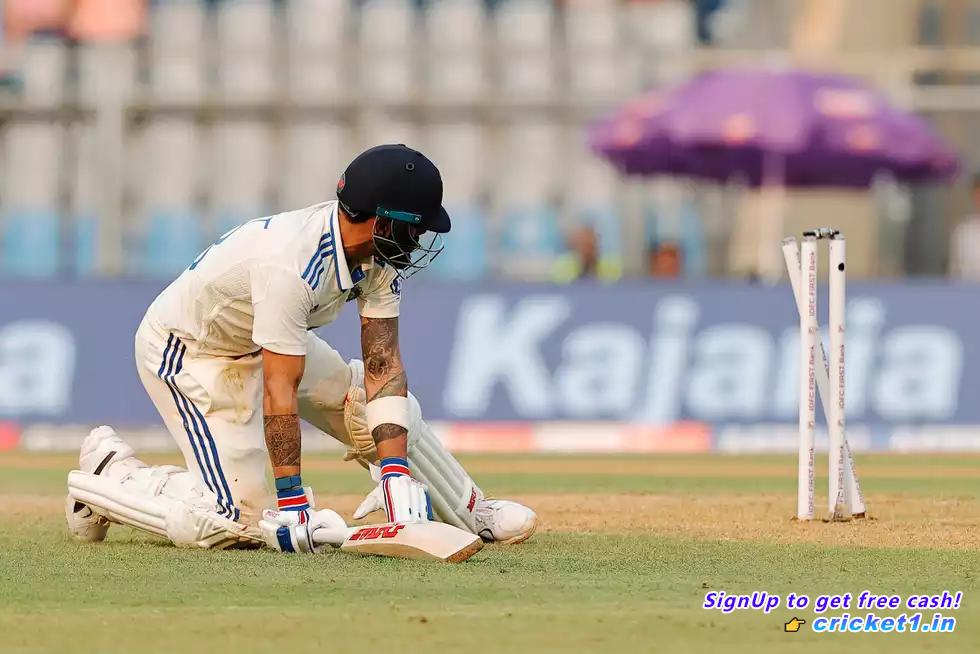
In what was anticipated as an opportunity for the Indian cricket team to salvage some pride, the Mumbai Test day presented itself as a chance for redemption. Trailing 0-2 in the Test series, the pressure was palpable on the Indian team, especially on the top-order batsmen, who bore much of the blame for their earlier performances. Despite a promising start, the team faltered at the most inopportune moment, leaving fans and players alike questioning the fragility of their current form.
Reflecting on the team’s struggles, all-rounder Ravindra Jadeja, who has been a cornerstone of India’s performances, shared his thoughts candidly. “I had personally thought that as long as I played in India, I wouldn’t want to lose a single series. But this also happened, and now I haven’t thought in my mind that I don’t want to do this or that,” admitted Jadeja during a post-match dialogue. His words seemed to resonate with the entire team as they confronted the reality of their current predicament.
The day started with a glimmer of hope as India managed a 53-run stand for the second wicket. Yashasivi Jaiswal, amidst a year where he has notched over 1000 Test runs, seemed poised to change his declining series trajectory. Yet, in an unfortunate twist of fate, Jaiswal missed a reverse sweep just minutes from the day’s close, resulting in his dismissal. With a peak score of 77 in five innings, his early departure once again left the Indian side grappling with a crisis of confidence in its top-order.
Compounding the troubles was the controversial decision to send Mohammad Siraj as a nightwatchman against a left-arm spinner on a turning pitch. Siraj fell to a plumb lbw on his very first ball, erroneously reviewing the decision after a brief, inconclusive consultation with Shubman Gill. This misstep saw India lose a precious review, an error that was only underscored by the immediate entry of Virat Kohli, who had been ready for his innings even before Siraj’s failed attempt.
Kohli’s introduction to the crease brought some semblance of stability, warding off a hat-trick delivery with textbook defense and getting off the mark with a well-timed shot. However, the specter of previous errors loomed large over his stay.
. The incident echoed back to a similar misjudgment in Pune, where a miscalculated sprint led to the run-out of Rishabh Pant, sparking a collapse where India lost four wickets for just 40 runs.
The mentality seemed unchanged as Kohli again found himself in a quick single mix-up, this time resulting in his own demise when a frantic dive couldn’t save his innings. Within the span of mere balls, India had surrendered three crucial wickets, unraveling the hard-fought progress made during the day.
Jadeja’s earlier efforts, which saw him break a critical 87-run partnership for New Zealand’s third wicket amid sapping humidity, had laid the groundwork for an Indian fightback. The bowling attack rallied around him, dismissing New Zealand for a modest 235. Despite the physical toll the conditions imposed, Jadeja expressed a pragmatic view of the international cricketing demands they were facing.
With the departure of talismanic wickets and confidence ebbing away, Jadeja lamented yet another upper-order collapse in the post-match conference. He highlighted the psychological dimension of pressure, noting how being 0-2 down might have exacerbated errors. “But when you keep winning and when you’re ahead 2-0, then everyone says, ‘It’s okay, it happens’. It doesn’t seem so important,” noted Jadeja, hinting at how perceptions fluctuate with fortune.
The unwelcome comparisons to performances in Bengaluru and Pune perhaps underscored the gravity of the current challenge. Yet, unlike those outings, the self-inflicted nature of these errors commanded introspection and swift rectification. As the prospect of redemption shifted to the second innings, the mantle would once more fall upon Jadeja and the lower-order to mitigate the top-order’s frailties.
In sum, the Mumbai Test had started with high hopes for an Indian return to form, yet familiar pitfalls disguised as new opportunities left the team staring at an uphill task. The earnest struggle for redemption had been swiftly overridden by an all too familiar narrative of collapses and unforced errors, setting the stage for a dramatic conclusion to the series.

